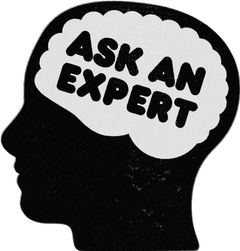Maica / Getty Images
The day’s biggest questions answered by the people who actually know WTF they’re talking about.
Advertisement
Philippa Willitts: It's a relatively new role that’s grown in recent years, and it's not always a clearly defined position. But I can tell you what I do. A publishing company or an author who is self-publishing might get in touch because they are publishing something that includes issues, themes or characters that are disabled or LGBTQ+ – those are the areas I cover. As a white woman, I’m not going to do anything around race, for example.
Advertisement
The demand is definitely growing, and more mainstream publishing companies are getting in touch [with me] now. I think authors don't want to publish a book and then find themselves in a Twitter storm, or realise through Amazon reviews that they've gotten something massively wrong. I’m just a more specialised editor, as maybe the editor doesn’t have the background I do.Are the edits the Telegraph piece states the kinds of changes a sensitivity reader would normally suggest?
I can't be sure about them all. I mean, there were a lot of edits and a lot of changes. Without having been part of that process, it’s very hard to tell.What did you think of the changes made?
I can't be 100% sure, but from what I saw, most of the changes looked fairly streamlined. They were changes that, if I was rereading the books now, I wouldn't notice. I saw some people saying that some changed the meaning, but I didn't see much of that. Most of what I saw was pretty reasonable.
Advertisement
But also, I think a lot of the changes that I saw were things that if a child now read the original words now, they would really stand out in a way that didn’t to me in the 80s. I think children are a lot savvier now and would pick up on, “Why are they saying that a girl has to be a secretary?" I think a lot of the changes, rather than any kind of censorship conspiracy, are changing things that would otherwise take a modern child out of the story. The wider question is, this is an author whose family have apologised for his antisemitism. Is this really somebody we still want to be centering in children's literature?Sensitivity readers are often thought of as a left-wing/ progressive thing. Is that necessarily the case?“I think a lot of the changes, rather than any kind of censorship conspiracy, are changing things that would otherwise take a modern child out of the story.” —Philippa Willitts
I think yes, but that's not a bad thing. I think one of the biggest misconceptions is that sensitivity reading is limiting what authors can say. And I can only speak for how I work, but I only ever work on books I've been asked to work on. It usually comes from the author who will say, “I want to make sure this character is right”, or, “I want to make sure in this nonfiction book that I covered this issue appropriately”. It's not something I've seen being imposed on authors. It's something that authors or editors are requesting, because they want characters to be really authentic and because they don't want to inadvertently really upset people. And so the idea that it’s any kind of authoritarian tool doesn’t match with the way I work or the people who commissioned me.Why would the Dahl publishers decide to make these changes in your opinion?
Maybe they were anticipating that somebody would read those books with modern eyes and think “that's outrageous” and wanted to pick up on those issues first. But it may be more cynical than that. The brand is massive after all, and no doubt the publishers do very well out of it, so it may be a commercial choice. But I like to think that it’s that they didn't want modern-day eyes to think this is really irrelevant.
